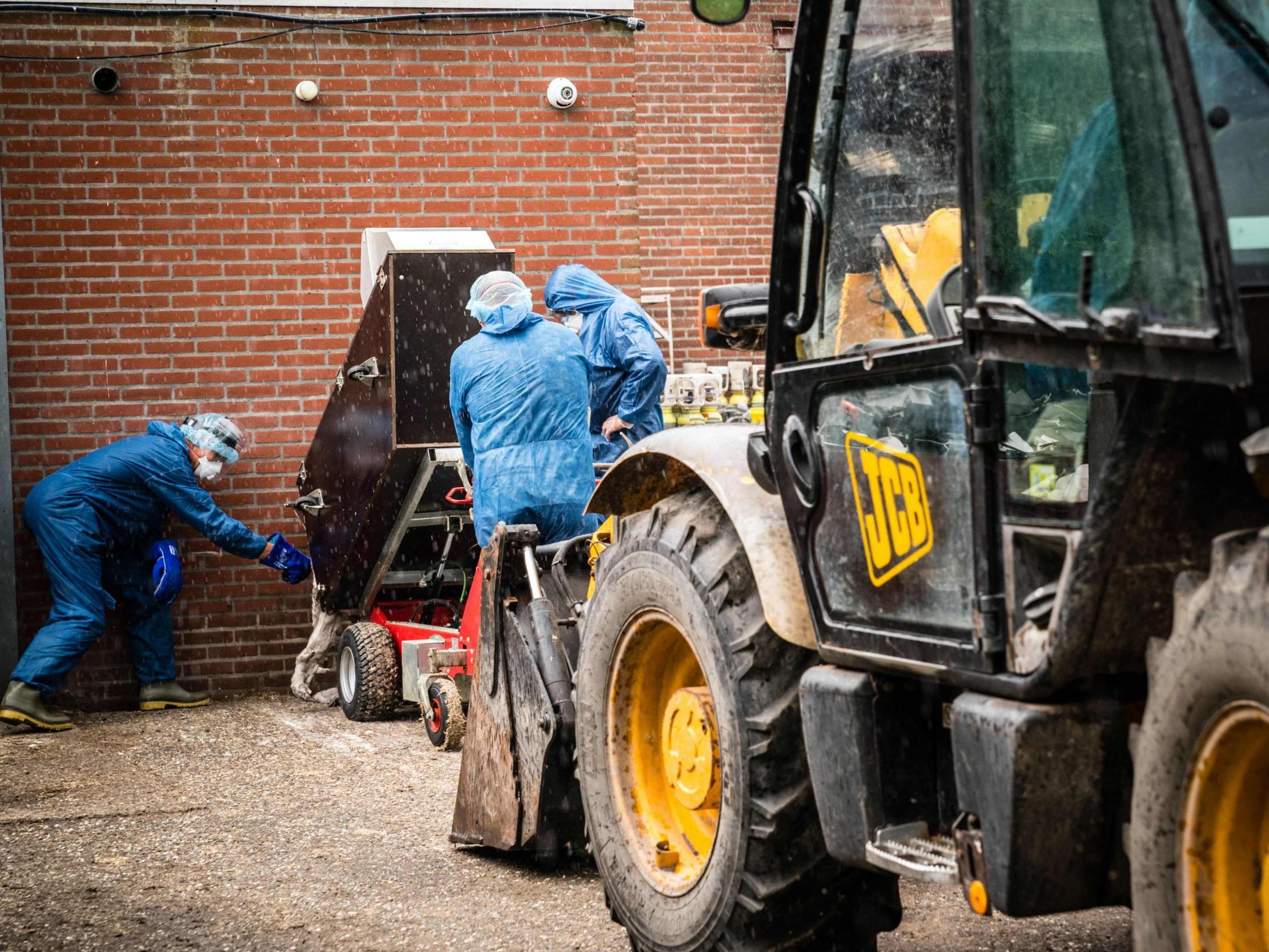Spain to cull nearly 100,000 mink after coronavirus outbreak at farm
Seven workers and an estimated 87 per cent of animals test positive in Aragon region
Your support helps us to tell the story
From reproductive rights to climate change to Big Tech, The Independent is on the ground when the story is developing. Whether it's investigating the financials of Elon Musk's pro-Trump PAC or producing our latest documentary, 'The A Word', which shines a light on the American women fighting for reproductive rights, we know how important it is to parse out the facts from the messaging.
At such a critical moment in US history, we need reporters on the ground. Your donation allows us to keep sending journalists to speak to both sides of the story.
The Independent is trusted by Americans across the entire political spectrum. And unlike many other quality news outlets, we choose not to lock Americans out of our reporting and analysis with paywalls. We believe quality journalism should be available to everyone, paid for by those who can afford it.
Your support makes all the difference.Nearly 100,000 mink will be slaughtered at a farm in Spain after seven staff and most of the animals tested positive for coronavirus, health authorities have said.
The outbreak in the village of La Puebla de Valverde was first noticed when the wife of one of the employees developed Covid-19 in May.
Officials in the Aragon region placed the farm into lockdown to prevent the virus spreading and began regular random testing of the mink.
By last week nearly 87 per cent of those tested were found to be infected, prompting the local government to order a mass cull of all 92,700 animals on the farm “as a preventive measure”.
Joaquin Olona, head of the Aragon agriculture department, said officials did not know whether the virus had been passed from humans to animals or vice versa.
“Such a conclusion should be the subject of another study,” he said at a press conference on Thursday.
None of the animals or their by-products have been allowed to enter or leave the farm since the seven workers tested positive on 22 May, the minister said. The company running the farm will be compensated for the loss of the mink, which are killed using carbon monoxide gas.
Similar outbreaks in the Netherlands have already resulted in the culling of more than one million mink across 23 farms, according to the Dutch public broadcaster NOS.

Animal protection charity Humane Society International said the spread of the disease among mink was a “compelling reason” to end the practice of fur farming.
“The risk from failing to eliminate this virus reservoir is clear and yet still the Dutch government is not acting decisively by fast-tracking the early closure of this cruel and dangerous industry,” said Dr Joanna Swabe, senior director of public affairs.
“In addition to fur factory farming being inherently cruel, the potential for zoonotic disease spread, and for mink fur farms in particular to act as reservoirs for coronaviruses, incubating pathogens transmissible to humans, is an unavoidably compelling reason for the world to call time on fur farming.”
While the creation of new mink farms in the Netherlands was banned in 2013, existing fur farms have until 2024 to close. In 2018 there were still 4.5 million mink on 128 working farms across the country.
Experimental evidence suggests that SARS-Cov-2, the virus that causes Covid-19, can also infect cats, dogs, monkeys, ferrets, and hamsters.
Last month a team of British scientists called for more research into domesticated animals to assess the likelihood they may re-infect humans who are seeking to prevent the spread of the disease.

Join our commenting forum
Join thought-provoking conversations, follow other Independent readers and see their replies
Comments